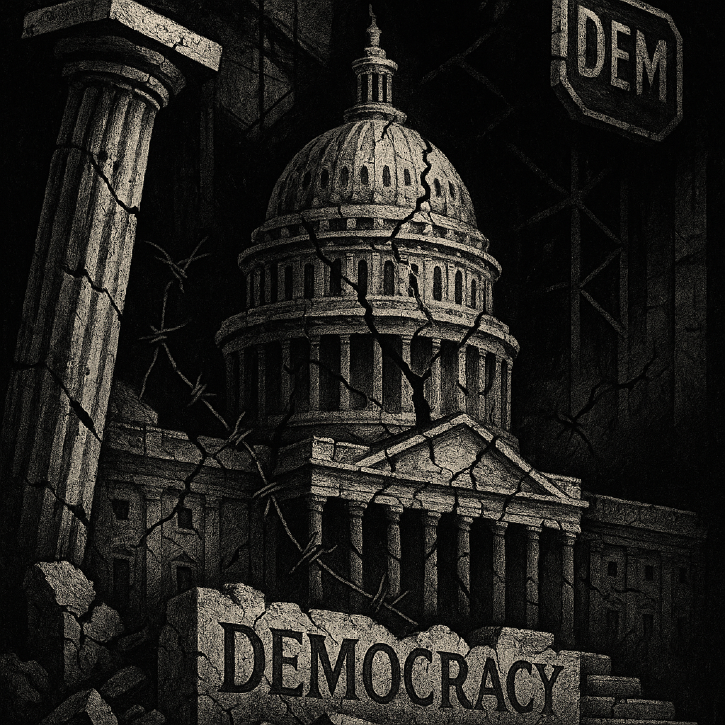Engineered to Fail: The Architecture of Democratic Decline
American democracy isn’t malfunctioning—it’s performing exactly as designed. From gerrymandering to dark money to judicial capture, our institutions were architected to resist the people, not serve them.

America's democratic institutions aren't failing despite their design – they're failing because of it. The crisis we face isn't a temporary malfunction but the predictable outcome of systems purposefully engineered to limit popular power and protect concentrated wealth.
This isn't accidental. It's architectural.
The sprawling apparatus of lobbying and dark money isn't a corruption of the policymaking process – it's a deliberate mechanism ensuring corporate interests trump the common good. Voter suppression tactics aren't desperate improvisations but calculated strategies to entrench minority rule against demographic change. The conservative capture of the judiciary isn't luck but the culmination of a decades-long project to remake jurisprudence in reactionary corporate interests.
Even our vaunted constitutional checks and balances have proven inadequate against authoritarian impulses. The filibuster, once celebrated as a guardrail against tyranny of the majority, now jams government gears to block modest reforms. The Electoral College, supposedly designed to prevent demagogues from capturing the presidency, has twice in two decades delivered the White House to popular vote losers. The Senate, giving Wyoming residents 70 times more representation than Californians, functions as a chokepoint on everything from judicial appointments to pandemic relief.
These aren't glitches or anachronisms. They're deliberately engineered points of failure, vulnerabilities hardwired into the system to ensure popular will never grows too strong, that politics remains the domain of the privileged and propertied. Every element of political machinery now being hijacked by authoritarians was built precisely for such a takeover – not to prevent it, but to facilitate it.
The same holds for our economic architecture. The labyrinthine tax code riddled with loopholes for the ultra-wealthy results from systematic lobbying by those who benefit most. Our tattered employer-based health insurance leaving millions uninsured persists because of pharmaceutical and insurance industry power, not despite it. The chronic underfunding of public education, housing, and infrastructure – disproportionately harming communities of color – reflects political choices, not budget constraints.
This is what a rigged system looks like: interlocking structures and incentives conspiring to concentrate wealth and power in ever-fewer hands, while turning marginalized communities against each other in a scramble for scraps. It speaks opportunity while methodically foreclosing it, pays lip service to democracy while insulating itself from genuine popular sovereignty.
As long as we deny this fundamental rigging – as long as we treat authoritarianism as an external virus rather than cancer metastasizing from within – we remain locked in a losing battle, expending energy on performative resistance while foundations rot beneath us.
The path forward isn't reform but reimagination – not tweaking a fundamentally flawed system but building new structures grounded in radical participation, accountability, and power distribution. We must abandon the fantasy that better leadership or messaging will save democracy, and acknowledge that a system incentivizing power hoarding over sharing is fundamentally incapable of meeting current challenges.
Until we confront that our democratic systems aren't broken but functioning exactly as designed, we'll continue treating symptoms while the disease progresses unabated.
The System Isn’t Broken. It’s Built This Way.
What looks like backsliding is really blueprint execution. Selective tolerance, performative opposition, bipartisan decay—it’s not dysfunction. It’s design.
The full dossier unmasks how democratic language cloaks authoritarian machinery—and why waiting for institutions to save us is part of the trap.
No ads. No TED Talk tone. Just strategy, history, and hard truths.
🧾 Every claim has a receipt. Check the source files, citations, and footnotes we weren’t supposed to find.
